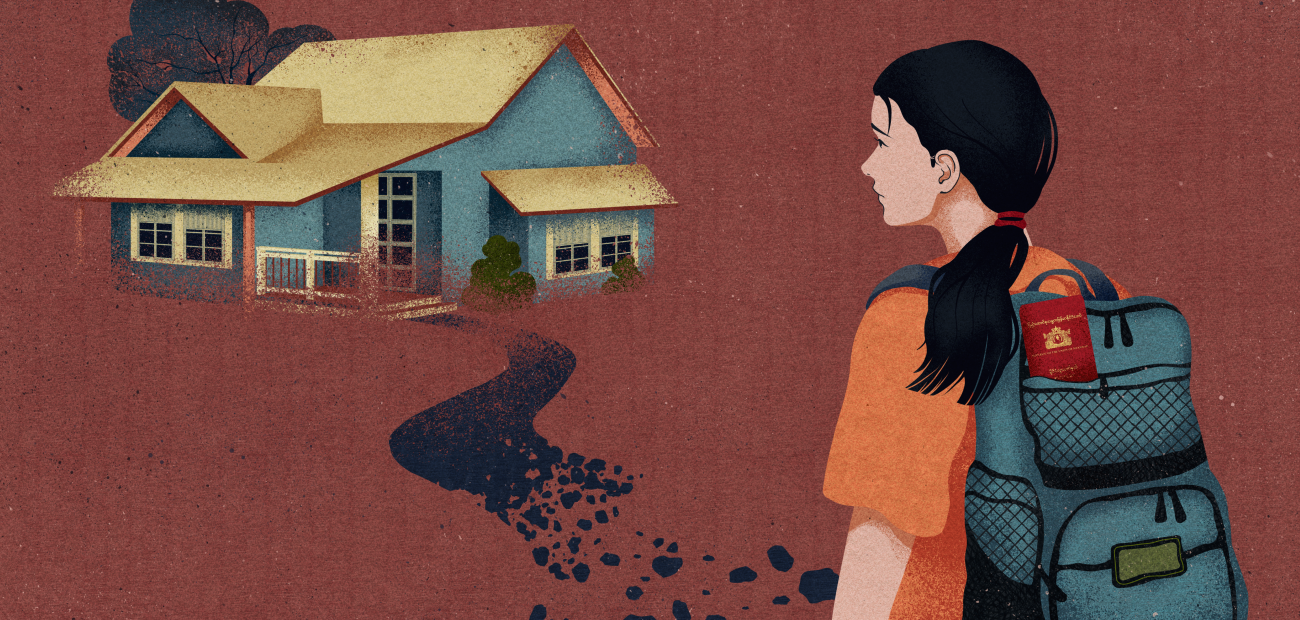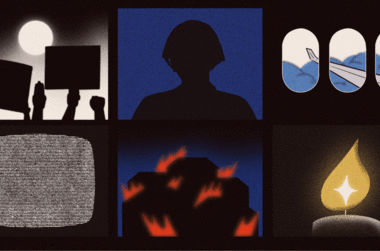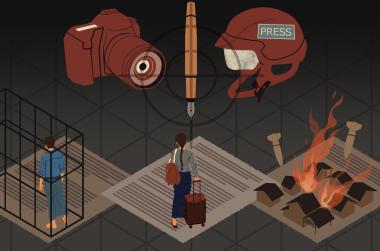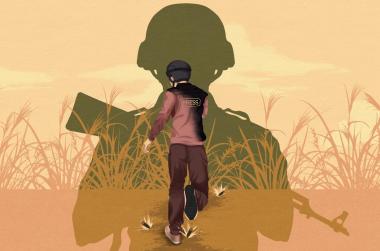The writer is a journalist in Yangon Region who is receiving support from The Kite Tales to write these diaries.
An average day, sometime after the military coup to the year 2023
How will all this frustration and suffocation come to an end? In this place, this small room, I feel like a trapped rat. I’m tired of it.
The moment the sun rises, I immediately feel the heat. The first thing I notice when I open my eyes is the power outage. With no electricity, I can’t turn on the air conditioner or even a fan. In the kitchen, my mother is cooking with a charcoal stove in a cloud of choking smoke. This has become a familiar sight again. Just four or five years ago, she was cooking effortlessly with a gas stove when the power supply was stable. But now, she’s back to using charcoal.
Today, I have to edit a video news report. Fortunately, I plugged in my laptop last night so it’s fully charged this morning. That means I can work for about four hours. After that, if the power doesn’t return, all I can do is sit and wait in silence.
By midday, my work is done, but the electricity hasn’t come back, and my laptop battery is dead. I turn it off and start planning interviews that I need to conduct before the power returns.
But interviews aren’t something I can do whenever I want; they depend on when my sources feel safe and comfortable enough to speak. Even though I work from home, I have to be cautious of my surroundings. I can’t speak too loudly, and I can’t work when visitors are around. Everything requires extra caution.
Day after day, I work in silence, unable to move freely or even speak on the phone openly. Going outside to gather news is out of the question. The days of rushing around, filming, and reporting are gone. Now, I just call sources and write reports based on their accounts. It’s frustrating. I miss the way things used to be.
I’ve tried different ways to cope with the suffocating situation - exercising, meeting friends, engaging in hobbies, even seeking counseling. But these only provide temporary relief, like treating an illness with a placebo. Once the distraction fades, the suffocation returns. I can’t change my reality. So, I’ve been thinking, should I leave and start over somewhere else? Many fellow journalists have already moved to Thailand, where they have more freedom to work. I want to go too, but I’ve never lived away from home before.
February 2024
As I pack my clothes for my journey to Thailand, I feel both excited and nervous. Will I get arrested trying to leave? A friend of mine was detained at the airport, so I can’t stop worrying about making it through immigration.
Early in the morning, as I arrive at the airport, I see strict security checks in place. The atmosphere is tense. Inside the airport, young men and women, many in small groups, line up at the immigration gate. About 90% of those leaving are young people. It’s heartbreaking. But at this point, leaving feels like the only option. I no longer know what’s right or wrong.
As I approach immigration, I notice a young woman, about 20 years old, surrounded by airport police and two immigration officers. She looks terrified as she tries to answer their questions, but they keep pressing her. I don’t know what’s happening, but it doesn’t look like she’ll be able to leave easily.
When it’s my turn, the officer scrutinizes my documents and asks where I’m going and what I do for work. He carefully checks my plane ticket. I answer cautiously, doing my best to stay calm, but my heart is pounding. I even have to act like I’m not nervous. Luckily, I made it through. Only then do I feel the weight in my chest lighten.
As I wait for my flight, my mind is filled with thoughts. Even though my plan is only to be gone for a short time, I fear I may never be able to return. And if I do return, when will that be? Will I be able to settle into life abroad? There’s no certainty about my future - this isn’t just my struggle, it’s what every young person in my country is facing.
In the past, traveling abroad was exciting but I would return home, landing at Yangon International Airport with a sense of relief. I used to live happily here, surrounded by loved ones, doing the work I was passionate about.
Now, because of the military conscription law, young people are losing their futures. The junta has imposed travel restrictions on men aged 18-35 and women aged 18-27, making it harder for them to leave the country. Some are even being turned away at the airport. A 22-year-old woman I spoke with, who tried to go to Dubai, was sent back.
“When they turned me away, I felt completely hopeless. I thought, ‘I guess I’m just stuck at home now.’ If I stay in Yangon, I’ll be lost,” she told me.
“I had already made up my mind to leave, but having that taken away so suddenly… At that moment, I even thought about ending my life. I just broke down and cried at the airport.”
With no sense of security or hope, young people are fleeing in droves. Thousands have already been forcibly conscripted. And those who manage to leave are struggling to make a living abroad, uncertain if they’ll ever return home. We all have homes, but we can’t live in them anymore.
As the plane takes off, I look out the window at Yangon. The sight tugs at my heart. This is the city I grew up in, the Yangon that has been a part of all my memories. My home. Leaving it now, I can’t help but wonder: will I ever come back?
2025
It has now been over a year since I moved to Thailand. At first, I thought I would only stay temporarily, but soon after I arrived, the conscription law was passed, making it impossible for me to return. So, I made the decision to stay.
More than a year since I left behind the daily rhythms of Yangon and my mother’s home, I’m in a foreign country, I try to adjust, suppress my homesickness, and focus on work. But every now and then, I find myself looking back. The road home has become longer.
The artwork is by Songbird who is receiving support from The Kite Tales to produce illustrations.





